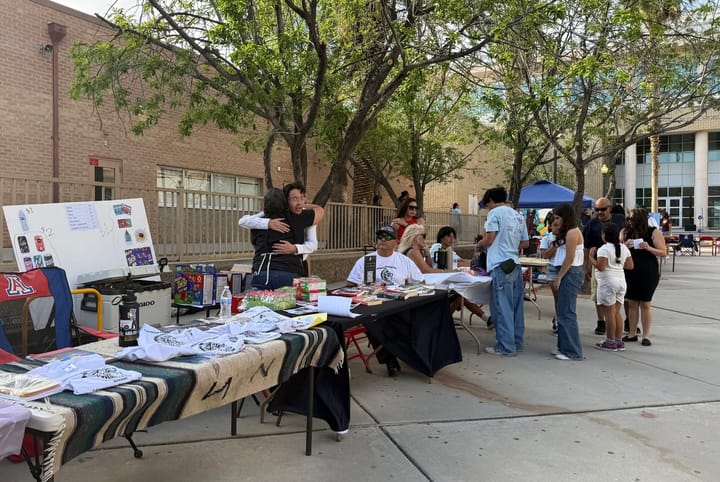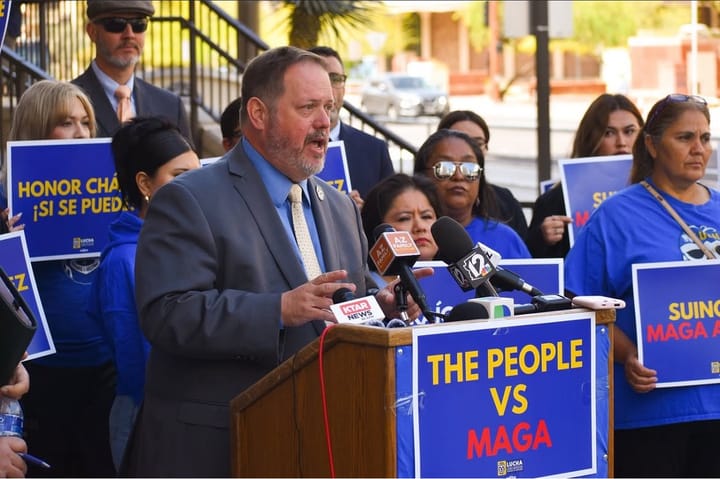TUSD increasing opportunities for Latino students and their families
TUSD’s Mexican American Student Services Department takes an asset-based approach to supporting Latino students by building on their strengths and providing culturally relevant resources and encouragement.
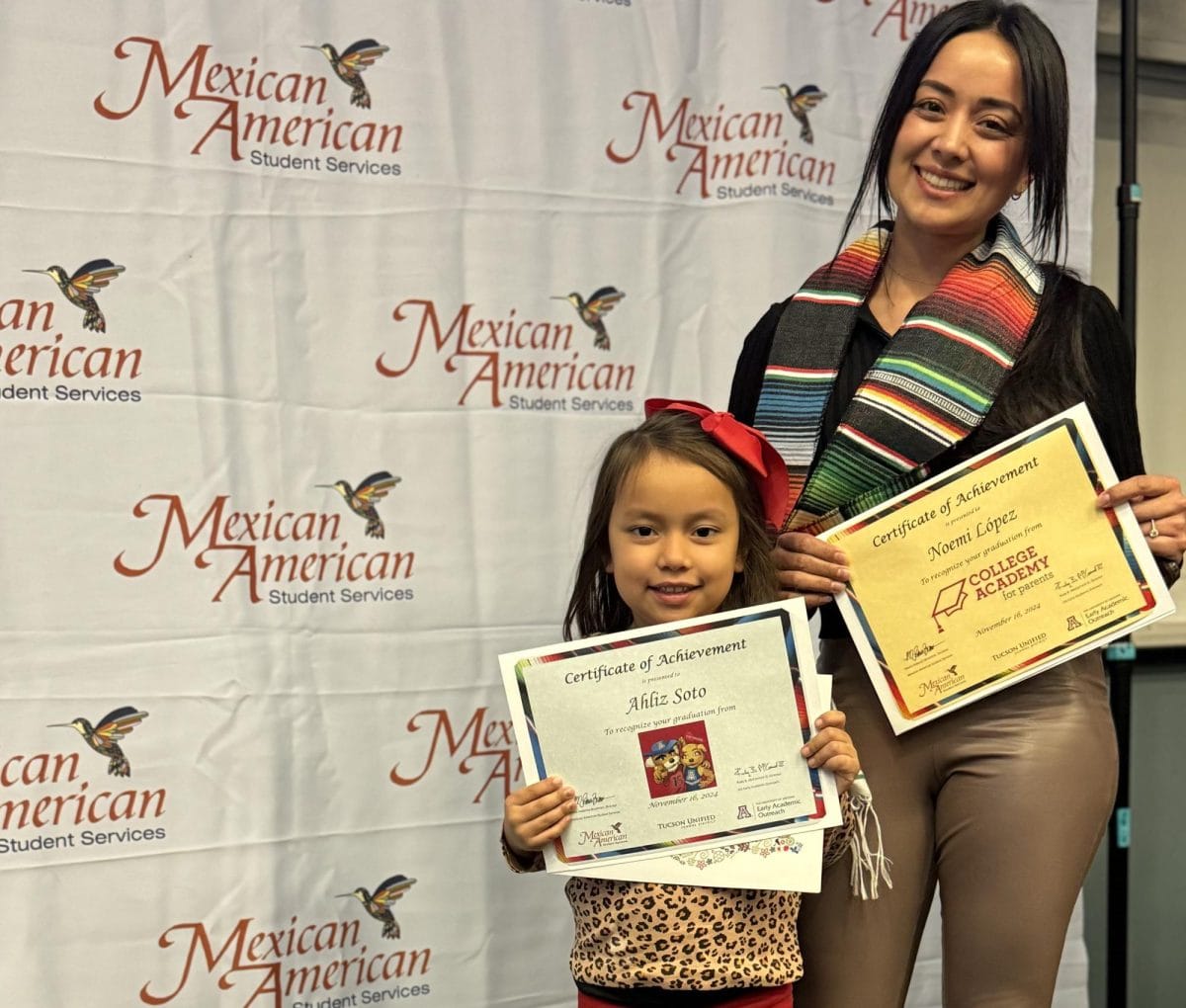
Zoe Montaño / Arizona Sonoran News
Balancing cross country races, dual-enrollment classes and evening JTED courses, Catalina High School junior Emiliano Caldera is no stranger to hard work.
Last month, he added another achievement to his impressive resume by becoming a member of Tucson Unified School District’s Mexican American and Latino Student Advisory Council.
The council unites student representatives from across the district, giving them a platform to voice their opinions on issues affecting their education.
“[The Student Advisory Council] taught me more about collaborating with others and problem-solving,” Caldera said. “The first day that we all got together, we had sticky notes and we created different topics we wanted to focus on. We were like, ‘Okay, we have to do this. How are we going to accomplish this goal?’”
Caldera is one of over 26,000 Latino students in the Tucson Unified School District, which makes up the majority of the district’s 40,000 students, according to TUSD Data Reports. TUSD’s Mexican American Student Services Department takes an asset-based approach to supporting Latino students by building on their strengths and providing culturally relevant resources and encouragement.
The department’s origins trace back to the Fisher Mendoza case, a 1974 lawsuit representing African American and Mexican American students. In 1978, a federal court found TUSD had acted with segregative intent and mandated the district address systemic discrimination, according to the United States Department of Justice.
In 2022, TUSD achieved “unitary status” in the desegregation case, meaning it was released from judicial oversight, according to the Arizona Daily Star. The responsibility of maintaining a desegregated district now falls on the TUSD governing board.
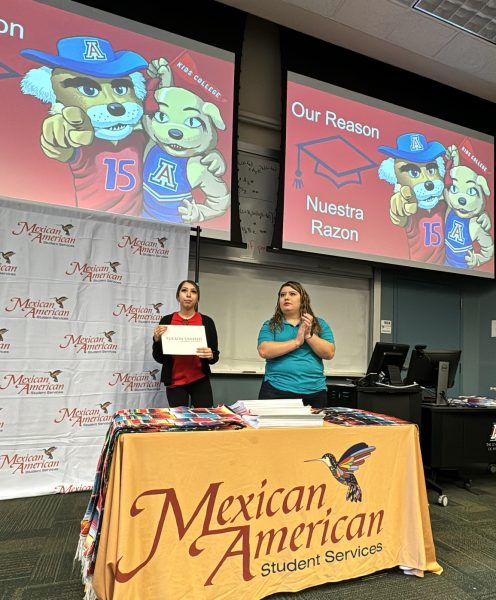
“It’s my parents and their generation that went through this discrimination and prejudice. I heard their stories,” said Maria Federico Brummer, the Mexican American student services department director. “They gave us this teaching: you have to demand better of our schools. We have to demand better of our teachers and our educational system.”
The Mexican American Student Services Department has introduced initiatives and programs to actively engage students and their families in their educational journeys.
One initiative is the College Academy for Parents, a program designed to help families navigate the often overwhelming complexities of higher education.
“They learn about, like, what’s a GPA? Why does that matter? How many A’s and C’s can they balance? How do I fund this? Like, I have no money, how do I get my kid a scholarship? What are personal statements? How do we even apply?” said Federico Brummer. “A lot of our parents have never navigated higher education. We’re able to help support that.”
At the end of the program, parents receive diplomas that recognize their knowledge and readiness to support their children.
The department also offers social-emotional support through empowerment groups, mentoring programs and workshops for students in alternative education settings. These initiatives are often implemented in collaboration with community partners.
“Last night there was a Substance Prevention Academy for parents and their high school students,” said Federico Brummer. “We do different programs like that with partnerships. In this case, it was with the Community Prevention Coalition of Pima County that helped organize it. We act as a bridge.”
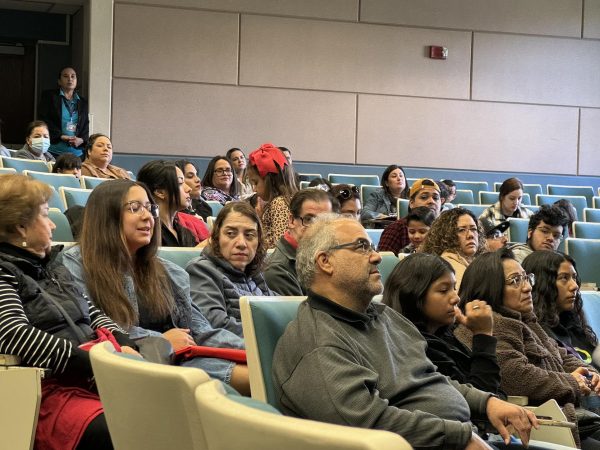
The department’s weekly newsletters and social media posts keep families informed about free tutoring, college workshops and community events. One of the department’s most significant contributions is ensuring information is accessible to Spanish-speaking families.
“We have a team of interpreters that we schedule to come in, and they put the headsets on and interpret for the family,” said Federico Brummer. “It’s important because we need to have these resources that are in our community, that may be, you know, seeking ways to engage with our specific population, but they don’t necessarily know how.”
Programs like Each One Teach One encourage high school students to explore careers in education. With nearly 60% of TUSD students identifying as Latino, the initiative addresses the critical shortage of teachers of color in the district.
Gennezy De La Vara, a Pueblo High School junior, Student Advisory Council member and Each One Teach One participant, hopes to inspire her peers to dream bigger.
“I want first-generation students to understand that their educational horizons don’t have to be limited,” said De La Vara. “As Mexican students, many feel like their only option is to continue in their family’s business, even if it doesn’t bring them happiness, or they settle for something they didn’t really want to do. I want them to realize that they can aim higher, push themselves, and start preparing now for what they truly want. There’s so much out there for them to experience, and their goals after high school are absolutely attainable.”
Through its efforts to bridge gaps in access and opportunity, the TUSD program is working to advance the progress seen in national trends. College enrollment among Hispanic students has steadily increased in recent years, according to the U.S. Census Bureau, with the number of Hispanic individuals aged 18 to 24 enrolled in college growing to 2.4 million in 2021, up from 1.2 million in 2005.
By supporting academic success and college readiness, the Mexican American Student Services Department is working to help even more students achieve these milestones.
“I’m always pushing my staff,” said Federico Brummer. “We’re going to be better than anyone else in terms of doing the work for our families.”
Arizona Sonoran News is a news service of the University of Arizona School of Journalism.


